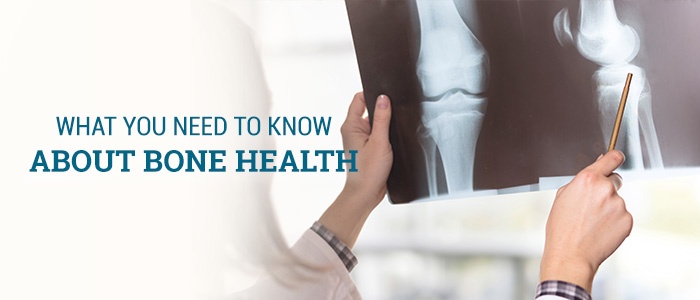
Remember how your parents and teachers used to always tell you, "You need more calcium in your diet - it'll give you strong bones." Well, on this point, they were overwhelmingly right. Those words you've been hearing for years are most definitely some you should be adopting.
Osteoporosis is a disease that can affect any age, sex or race - regardless of what you may have heard - so it's important to work toward prevention early and often. This means making good choices and instilling good habits at as young an age as possible. (And if it's already set in for you, don't worry - you can still take steps to treat it and keep the effects of low bone density at bay.)
Here are just a few simple ways that a person can combat the effects osteoporosis or weakened bones.
Nutrition
This one is a gimme for most - calcium is a key ingredient of preventing and treating low-density bones. But this doesn't just mean milk and dairy products (though they are a great source of this crucial nutrient). Beans, particularly white beans, are high in calcium and certain types of fish, namely salmon, pack a lot of the nutrient in a serving. And if you're feeling adventurous, bok choy and even seaweed can work wonders for your calcium intake.
What's often forgotten, though, is that foods rich in Vitamin D also go a long way toward preventing and treating osteoporosis. This vitamin helps your body absorb calcium, so it's a critical part of the process. Luckily, many of these same foods that are rich in calcium are also rich in Vitamin D, such as salmon and dairy products. You can also get some extra D through orange juice, eggs and a few extra rays (within reason and utilizing sunblock protection, of course).
Exercise
Your bones get stronger the more you use them - particularly if you make it a habit at a young age. Limit your time being sedentary on the couch and take opportunities to exercise regularly. And even if strenuous exercise isn't your thing or if you're not physically up to the task, weight-bearing exercise, from tennis to stair-climbing to general walking, can get you the regular strengthening you need.
Habits
Like with many other health problems, osteoporosis is only heightened by poor habits, such as smoking and excessive drinking. Limiting your alcohol consumption and tobacco smoking keeps these habits from damaging your bone cells, weakening them and opening them up to fracture.
Breakage
Decreasing your risk of falling or injury is always a good idea - weakened bones are all the more prone to fractures and other breakage. Work on exercises that improve your balance and remove any obstructions from your daily routes and paths. As you get older, your bones will naturally weaken, so this becomes even more important with age. Luckily, if you've taken these other steps to make your bone cells stronger, breakage is less and less likely, even in the event of a fall.
Don't Forget
With one in two women and one in four men coming down with osteoporosis (and the added stress that hereditary genes and lifestyle choices add to your odds), take your health into your own hands. These basic changes to your daily habits will limit pain, decrease your days off from work due to injury, reduce your healthcare expenses and keep you moving healthfully.
Source: Bone and Joint Initiative USA

